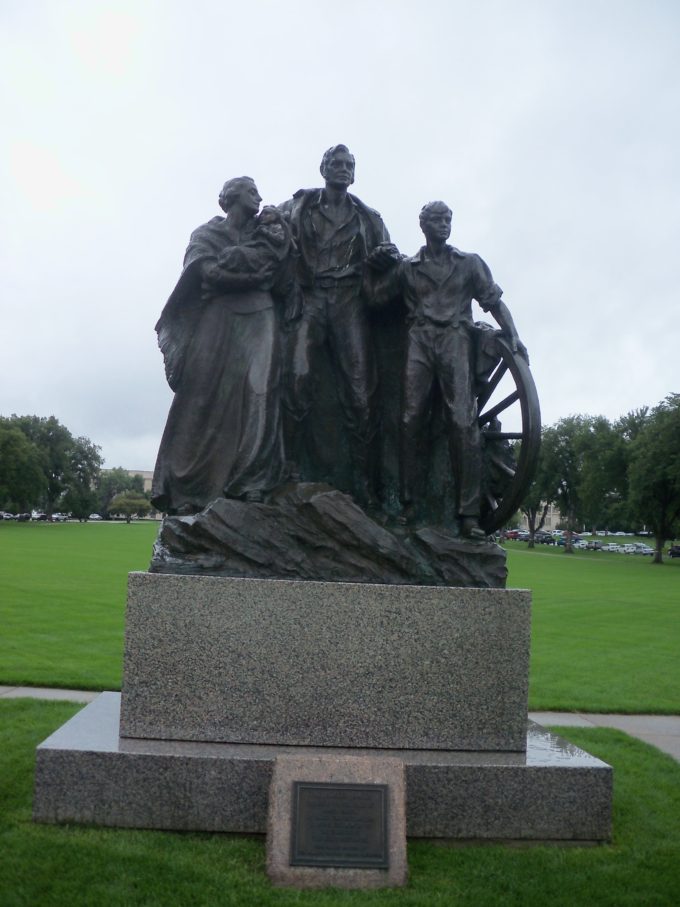
Saturday, 7 September 2019
My brethren, take the prophets, who spoke in the name of the Lord, as an example of suffering and patience. James 5:10
James has said that “the coming of the Lord is at hand” (verse 8). However, he also said that his audience is also to be patient. What is true, then, is that the coming of the Lord being “at hand” means at any given time, but not specifically in a short amount of time. It is obvious now, two thousand years after he wrote this, that this is true. And as a part of the wait – no matter how long it will be – the brethren can expect trials. And in those trials, there is to be an acknowledgment that they are not unknown to the Lord.
Understanding this, he says, “My brethren.” As he has done numerous times, he indicates that his letter is written to believers who are “brethren” in Christ. This is not without importance, because he next says, “take the prophets.” He is making a connection between the prophets of old and the brethren in the church. In essence, “As they were, so you should be.”
He then further clarifies who “the prophets” are that he is speaking of by saying, “who spoke in the name of the Lord.” He is obviously referring to the true prophets, not the lengthy list of false prophets recorded in books such as Jeremiah. Were the true prophets exempt from difficulty which extended out for unknown durations of time? No! Rather, they faced the same limitations as anyone else. And they also faced suffering like anyone else. But James says to look to them “as an example of suffering and patience.”
The meaning of this is that they suffered, but that they were also patient in their suffering. Patience here implies not knowing how long they would suffer, but they bore up through their trials. Jeremiah was called to be a prophet, and at the time of his calling he was told that things would be tough –
“‘They will fight against you,
But they shall not prevail against you.
For I am with you,’ says the Lord, ‘to deliver you.’” Jeremiah 1:19
Daniel faced the lions, his three friends faced the fiery furnace, Isaiah was told to go about naked and barefoot, Ezekiel’s wife was taken from him and he was instructed to not mourn over her. On and on, the record of the prophets reflected that of difficulty, trial, and suffering. And yet they were patient in their affliction because they knew the Lord was with them. And the believers in Christ have this same guarantee –
“Let your conduct be without covetousness; be content with such things as you have. For He Himself has said, ‘I will never leave you nor forsake you.’” Hebrews 13:5
James is imploring his audience to understand that the same Lord of the prophets is the Lord of the church. Believers in Him have the same assurance of affliction that the prophets did, but they also have the same promise of His faithfulness that the prophets possessed. Paul was told this right at the beginning of his ministry –
“But the Lord said to him, ‘Go, for he is a chosen vessel of Mine to bear My name before Gentiles, kings, and the children of Israel. 16 For I will show him how many things he must suffer for My name’s sake.’” Acts 9:15, 16
Paul knew that suffering lay ahead, and yet he accepted his commission (see Acts 26:19) without reservation. James is asking for his reader to consider these things, to understand that suffering is a part of the human experience of which believers are not exempt, and to be patient through that suffering – no matter how long it will continue.
Life application: So much for the “prosperity gospel” where everyone gets wealthy and lives carefree lives after accepting Jesus! James reminds us that the very people who received God’s word were often the ones who suffered the most. The Lord’s chosen were placed in stocks, stoned, deprived of food, and tortured.
These great heroes of the faith accepted what God chose for them because they understood that God is sovereign. He created them and has every right to portion out both blessings and hardships. Likewise, we need to accept the good and the bad, the joyous and that which saddens, and prosperity and poverty.
We can carry a like attitude during all circumstances when we have a strong and grounded faith. It is this type of faith that God is pleased with and which He acknowledges with favor. When we can look beyond the moment and see the eternal rewards in store, then we have truly come to that comfortable spot where nothing can steal our joy.
As the Psalmist of old said –
“I called on the Lord in distress;
The Lord answered me and set me in a broad place.
6 The Lord is on my side;
I will not fear.
What can man do to me?” Psalm 118:5, 6
Heavenly Father, it is easy to read words of courage and strength during suffering, but it is much harder to actually live that way ourselves. Give us the ability to praise You and to accept what You have given us – good or bad – that we may be true children of faith. May You be the One who is glorified through our lives. Amen.




